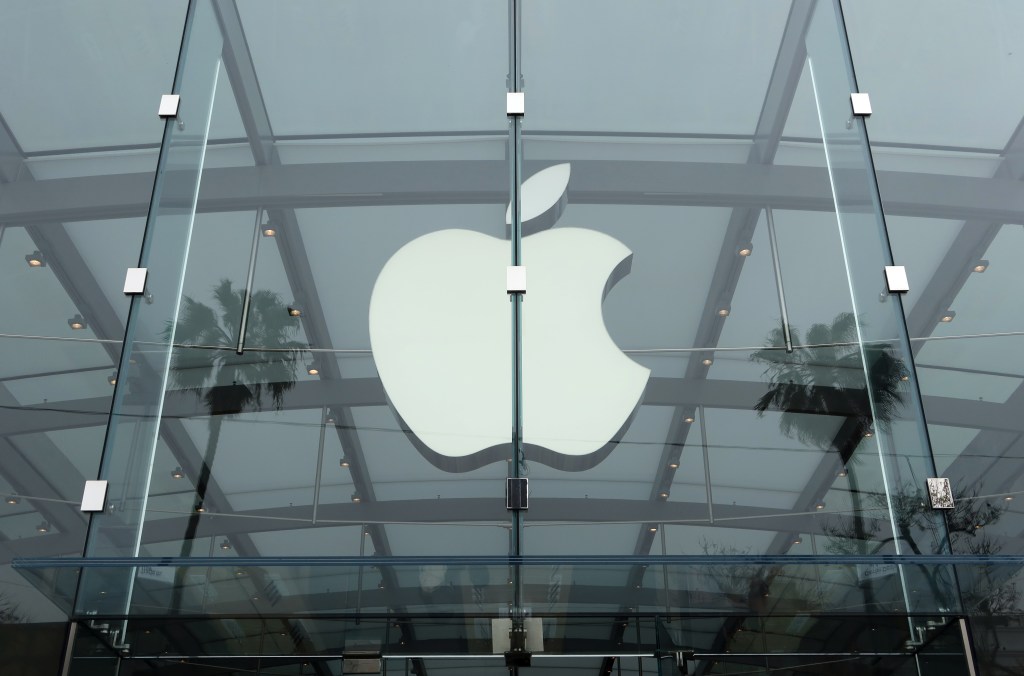The Justice Department and more than a dozen states and Washington, D.C. filed a lawsuit against Apple on Thursday, alleging the tech giant and iPhone maker violated antitrust laws through restrictive policies that hurt competitors and consumers—one of the largest lawsuits so far in the federal government’s sweeping tech antitrust crackdown.

Key Takeaways
- The lawsuit, filed in the U.S. District Court of New Jersey, alleges that Apple has illegally monopolized the smartphone market in violation of Section 2 of the Sherman Antitrust Act.
- The complaint alleges the tech giant makes it harder for consumers to switch to non-Apple devices, such as Androids, and “affirmatively undermines the quality of rival smartphones,” citing as examples “limited functionality” and green text bubbles that occur when iPhone users attempt to message non-iPhone users.
- Apple also allegedly uses a “series of shapeshifting rules and restrictions” like app store policies and developer agreements that prevent competitors from offering alternatives to its services on iPhones, like digital wallets, according to the lawsuit.
- The alleged monopolization extends beyond Apple’s iPhone, according to the lawsuit, affecting web browsers, automotive services, advertising services and more.
- Deputy Attorney General Lisa Monaco said during a press conference the tech giant “has gone from revolutionizing the smartphone market to stalling its advancement.”
- Attorney generals from New Jersey, Arizona, California, Connecticut, Maine, Michigan, Minnesota, New Hampshire, New York, North Dakota, Oklahoma, Oregon, Tennessee, Vermont, Wisconsin and Washington, D.C. have joined the lawsuit, according to court filings.
- Apple told Forbes it believes the lawsuit “is wrong on the facts and the law,” adding “we will vigorously defend against it.”
Crucial Quote
“Unless Apple’s anticompetitive and exclusionary conduct is stopped, it will likely extend and entrench its iPhone monopoly to other markets and parts of the economy,” the lawsuit said.
Key Background
Apple is one of the world’s largest companies, owing its $2.66 trillion market cap largely to the success of the iPhone, which was first introduced in 2007. But the tech giant has long faced criticisms that it has used its dominance in the smartphone market to stifle competition and impose large fees on payments to third-party app developers. Fortnite maker Epic Games sued Apple in 2020 for requiring apps to use its in-house payment system and taking a 30% cut on in-app payments.
A judge ruled in 2021 that Apple violated California state laws on unfair competition but did not have a monopoly on mobile gaming. The Supreme Court refused to review appeals from both parties in January, requiring the iPhone maker to begin allowing alternative in-app payment options. On March 13, Epic Games alleged Apple did not comply with the ruling and requested the company be held in contempt. Microsoft, Match Group, Meta, and X (formerly known as Twitter) filed a brief on Wednesday opposing the alternative payment plan. Thursday’s lawsuit is also the third the DOJ has filed against Apple since 2010, according to Bloomberg, but is the first that accuses the tech giant of illegally maintaining a monopoly—and the latest in the federal government’s antitrust crackdown on big tech companies.
Tangent
Regulating anti-competitive behavior in the tech sector has been a priority for the Biden administration. Last January, the DOJ and eight states filed a lawsuit against Google—the second since October 2020—alleging it abused its monopoly on advertising technology and prevented competition through various acquisitions. In January, the Federal Trade Commission announced it was investigating AI deals across big tech companies, including Microsoft, OpenAI and Alphabet. The federal government also unsuccessfully tried to stop Microsoft from acquiring game developer Activision Blizzard.
This article was first published on forbes.com and all figures are in USD.


